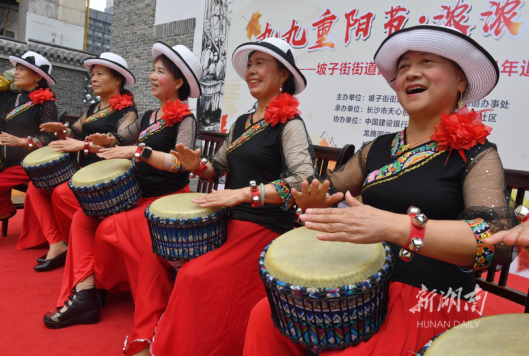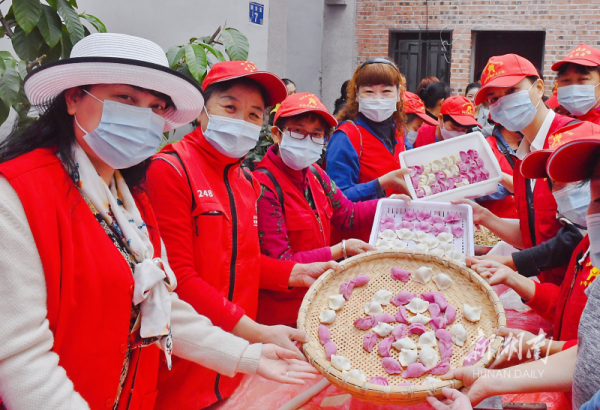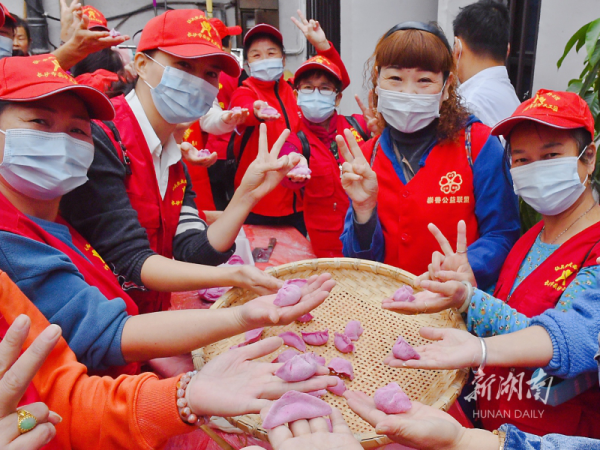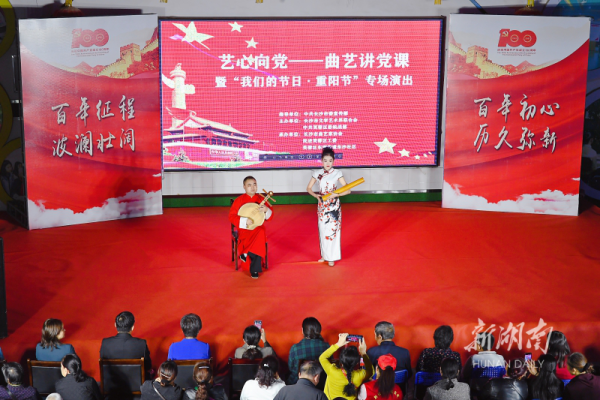According to I Ching, or Book of Changes, "nine" is a positive-or yang-number. Therefore, the ninth day of the ninth month means "double nine" or "double yang". Since "chong" means double in Chinese, it is also called "Chongyang" in China.
The Double Ninth Festival originated from the Warring States Period (475 - 221 BC) and became popular in the Han dynasty (202 BC - 220 AD). It was regarded as an official folk festival in the Tang dynasty (618-907 AD).
The Double Ninth Festival is celebrated by caring for the elderly, eating auspicious food to drive away from danger, and enjoying outdoor activities. The most well-known traditions are climbing hills, hiking, eating Chongyang cakes, admiring chrysanthemums, drinking chrysanthemum wine, and wearing cornels (Zhuyu).
Today, thankfully, the Chongyang Festival has a more positive meaning. Since the pronunciation of nine in Chinese is the same as "eternal" or "forever", the festival is regarded as an especially auspicious day to wish longevity and health upon our senior citizens and people usually visit, or send greetings to, the senior members of their family.

The community organized a Double Ninth Festival-themed activity that day, to show care and respect to the elderly. Several literature and art publicity teams in the district brought various programs to the elderly. Community volunteers prepared freshly-made dumplings for the elderly, and celebrated the festival with them.

The photo, taken on October 13, shows community volunteers displaying freshly-made dumplings. (Photo/Xu Xing and Bin Bin, Hunan Daily)

The photo, taken on October 13, shows community volunteers displaying freshly-made dumplings. (Photo/Xu Xing and Bin Bin, Hunan Daily)

The photo, taken on October 12 evening, shows performers performing Changsha Tanci, or story-telling, at the Dongsha Theater, Changsha. (Photo/Xu Xing and Li Meng, Hunan Daily)
The Dongsha Community, Donghu Neighborhood, Furong District, Changsha, together with the Changsha Ballad Singers Association, organized a special performance themed “Our Festival -- Chongyang Festival” that evening. Popular folk art performances including Tanci, Xiaopin (short skit), Kuaiban (allegro), solo, singing, and dancing were staged. They focused on the theme of Hunan’s revolutionary history, and eulogized the great achievements of the Communist Party of China.
This article is from Hunan Provincial Government www.enghunan.gov.cn.
Translator: Kuang Zhenzhen
Chinese source: hunantoday; ECNS; China travel
The Dongsha Community, Donghu Neighborhood, Furong District, Changsha, together with the Changsha Ballad Singers Association, organized a special performance themed “Our Festival -- Chongyang Festival” that evening. Popular folk art performances including Tanci, Xiaopin (short skit), Kuaiban (allegro), solo, singing, and dancing were staged. They focused on the theme of Hunan’s revolutionary history, and eulogized the great achievements of the Communist Party of China.
This article is from Hunan Provincial Government www.enghunan.gov.cn.
Translator: Kuang Zhenzhen
Chinese source: hunantoday; ECNS; China travel








